-
 Bitcoin
Bitcoin $83,205.0203
-2.55% -
 Ethereum
Ethereum $1,575.2742
-4.49% -
 Tether USDt
Tether USDt $0.9998
0.00% -
 XRP
XRP $2.0969
-2.59% -
 BNB
BNB $581.6935
-2.75% -
 Solana
Solana $126.0494
-4.63% -
 USDC
USDC $0.9998
-0.02% -
 Dogecoin
Dogecoin $0.1618
-3.59% -
 TRON
TRON $0.2525
2.34% -
 Cardano
Cardano $0.6343
-3.56% -
 UNUS SED LEO
UNUS SED LEO $9.2941
-0.24% -
 Chainlink
Chainlink $12.5011
-5.43% -
 Avalanche
Avalanche $19.3931
-5.63% -
 Stellar
Stellar $0.2362
-4.04% -
 Sui
Sui $2.2141
-5.83% -
 Toncoin
Toncoin $2.8584
-6.05% -
 Shiba Inu
Shiba Inu $0.0...01200
-4.50% -
 Hedera
Hedera $0.1645
-5.67% -
 Bitcoin Cash
Bitcoin Cash $341.0078
-1.31% -
 Litecoin
Litecoin $76.9728
-2.09% -
 Polkadot
Polkadot $3.6574
-1.60% -
 Dai
Dai $1.0000
-0.02% -
 Bitget Token
Bitget Token $4.2769
-3.16% -
 Hyperliquid
Hyperliquid $15.0799
-9.33% -
 Ethena USDe
Ethena USDe $0.9989
-0.02% -
 Pi
Pi $0.7202
-3.36% -
 Monero
Monero $202.6034
-1.88% -
 Uniswap
Uniswap $5.2907
-4.31% -
 OKB
OKB $52.9004
-1.67% -
 Pepe
Pepe $0.0...07189
-3.56%
What is a smart contract? How does a smart contract work?
Self-executing contracts coded on a blockchain, smart contracts automate agreements based on predefined conditions, offering transparency and immutability, but require careful auditing to mitigate security risks.
Mar 12, 2025 at 11:25 am
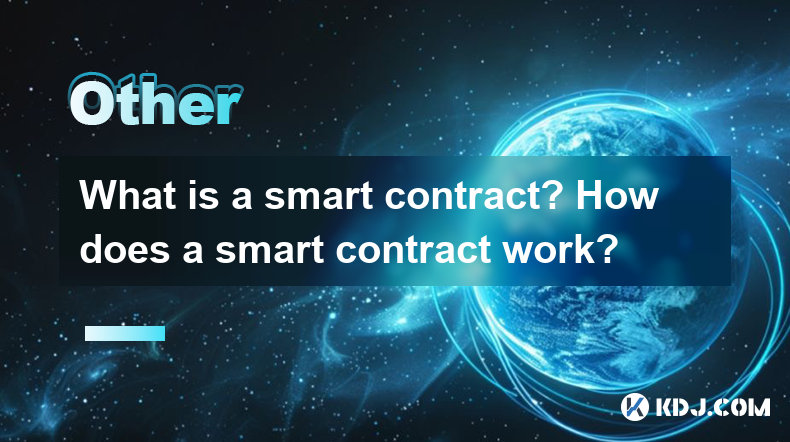
Key Points:
- Smart contracts are self-executing contracts with the terms of the agreement between buyer and seller being directly written into lines of code.
- They operate on a blockchain, ensuring transparency, security, and immutability.
- Smart contract functionality relies on predefined conditions and triggers.
- Deployment and interaction involve using blockchain platforms and compatible wallets.
- Security vulnerabilities are a major concern, requiring careful auditing and development.
What is a Smart Contract?
A smart contract is a self-executing contract with the terms of the agreement between buyer and seller being directly written into lines of code. Instead of relying on intermediaries like lawyers or notaries, these contracts automatically execute when predetermined conditions are met. This automation eliminates the need for trust between parties, as the code itself enforces the agreement. The immutability of blockchain technology ensures that once a smart contract is deployed, its terms cannot be altered without the consent of all parties involved. This creates a transparent and secure environment for various transactions.
How Does a Smart Contract Work?
Smart contracts function by utilizing a combination of code and blockchain technology. The core logic of the contract, specifying the conditions for execution and the actions to be taken, is written in a programming language like Solidity (commonly used on Ethereum). This code is then deployed onto a blockchain, making it publicly viewable and verifiable. Once deployed, the contract's execution is triggered by specific events or conditions defined within its code. These events could be anything from a payment being received to a specific date being reached.
- Trigger Event: A predefined event occurs, such as a payment being made or a certain time elapsing.
- Code Execution: The smart contract's code executes automatically upon meeting the trigger conditions.
- State Change: The blockchain's state is updated to reflect the changes resulting from the code execution. This update is permanent and immutable.
- Outcome: The desired outcome of the agreement is achieved, often involving the transfer of assets or information. This happens automatically and transparently.
Creating a Smart Contract:
Developing a smart contract requires a specific skill set and understanding of blockchain technology. The process generally involves:
- Defining the Contract: Carefully outlining all terms and conditions of the agreement. This requires meticulous planning to avoid ambiguities or loopholes.
- Choosing a Platform: Selecting a suitable blockchain platform like Ethereum, Binance Smart Chain, or others, depending on the requirements of the contract.
- Writing the Code: Using a programming language like Solidity to write the code that implements the contract's logic. This requires expertise in programming and blockchain development.
- Testing and Auditing: Thoroughly testing the code to identify and fix any bugs or vulnerabilities before deployment. Independent audits by security experts are highly recommended.
- Deployment: Deploying the compiled code onto the chosen blockchain network. This typically involves using a development environment and a compatible wallet.
Interacting with a Smart Contract:
Once a smart contract is deployed, users can interact with it using compatible wallets or interfaces. This interaction typically involves:
- Connecting a Wallet: Connecting a cryptocurrency wallet that supports the blockchain network where the contract resides.
- Initiating a Transaction: Sending a transaction to the contract, triggering its execution if the conditions are met.
- Monitoring the Outcome: Tracking the status of the transaction and verifying the outcome on the blockchain explorer. This ensures that the contract executed as expected.
Security Considerations:
Smart contracts, while offering increased security and transparency, are still susceptible to vulnerabilities. Security concerns are paramount and require careful attention:
- Reentrancy Attacks: These exploit vulnerabilities in the code to allow malicious actors to repeatedly call functions, draining funds.
- Denial of Service (DoS) Attacks: These aim to disrupt the contract's functionality by overwhelming it with requests.
- Logic Errors: Errors in the contract's code can lead to unintended consequences or allow for exploitation.
- Gas Limits: Insufficient gas allocation can prevent the contract from completing its execution.
- Auditing: Thorough code audits by independent security experts are crucial to identify and mitigate potential vulnerabilities.
Common Questions and Answers:
Q: Are smart contracts legally binding?
A: The legal enforceability of smart contracts varies depending on jurisdiction. While the code itself is self-executing, the underlying legal framework may still be needed to resolve disputes or enforce the contract's terms.
Q: What are the benefits of using smart contracts?
A: Benefits include increased transparency, automation, security, reduced costs associated with intermediaries, and enhanced efficiency.
Q: What are the limitations of smart contracts?
A: Limitations include the complexity of development, potential security vulnerabilities, the need for specific technical expertise, and the dependence on the underlying blockchain technology.
Q: Can smart contracts be used for anything?
A: Smart contracts can be used for a wide range of applications, including decentralized finance (DeFi), supply chain management, voting systems, digital identity management, and many more. However, the complexity of the application should be considered.
Q: How can I learn more about developing smart contracts?
A: Numerous online resources are available, including documentation for different blockchain platforms, online courses, and communities dedicated to smart contract development. Understanding programming and blockchain technology is crucial.
Disclaimer:info@kdj.com
The information provided is not trading advice. kdj.com does not assume any responsibility for any investments made based on the information provided in this article. Cryptocurrencies are highly volatile and it is highly recommended that you invest with caution after thorough research!
If you believe that the content used on this website infringes your copyright, please contact us immediately (info@kdj.com) and we will delete it promptly.
- The best cryptos to invest in right now are not what you might expect.
- 2025-04-14 05:25:12
- Today, a token from the decentralized exchange (DEX) ORCA on the Solana blockchain has surged more than 60% in value
- 2025-04-14 05:25:12
- Onyxcoin ($XCN) is Fast Becoming One of the Most Discussed Altcoins in the Cryptocurrency Market.
- 2025-04-14 05:20:12
- The memecoin market still drew interest from clever investors, judging by on-chain data
- 2025-04-14 05:20:12
- The cryptocurrency sector has demonstrated a degree of resilience over recent days, during which both Bitcoin and Ethereum have notched what might be taken as significant support levels.
- 2025-04-14 05:15:13
- $POPCAT is the New Memecoin King. Will This Trader Find Redemption?
- 2025-04-14 05:15:13
Related knowledge
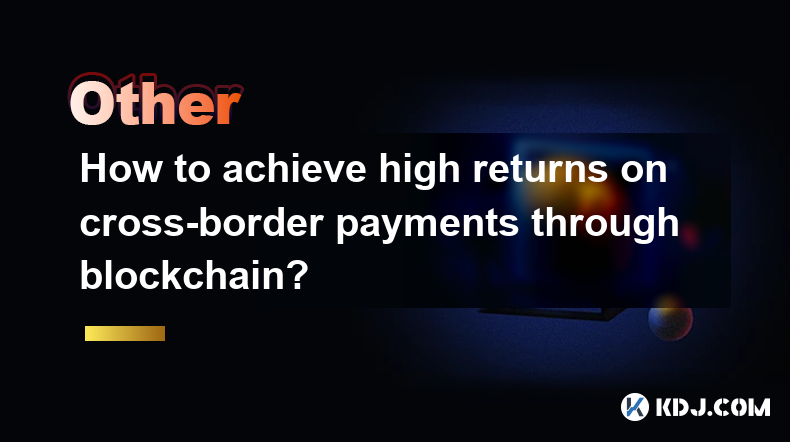
How to achieve high returns on cross-border payments through blockchain?
Apr 12,2025 at 05:57pm
How to Achieve High Returns on Cross-Border Payments Through Blockchain? Cross-border payments have traditionally been plagued by high fees, slow processing times, and a lack of transparency. However, the advent of blockchain technology offers a promising solution to these issues, potentially allowing for high returns on such transactions. Blockchain te...
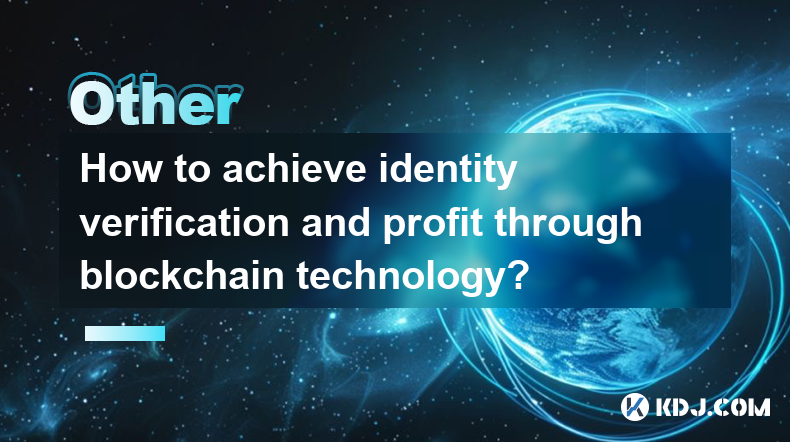
How to achieve identity verification and profit through blockchain technology?
Apr 12,2025 at 10:35pm
Achieving identity verification and profit through blockchain technology involves understanding the underlying principles of blockchain, exploring specific applications that facilitate identity verification, and leveraging these technologies to generate profit. This article will delve into these aspects, providing a comprehensive guide on how to navigat...
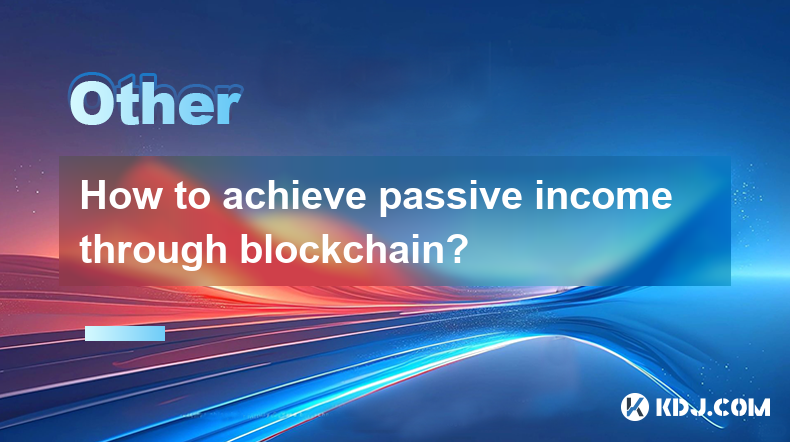
How to achieve passive income through blockchain?
Apr 13,2025 at 09:00pm
Achieving passive income through blockchain technology has become an increasingly popular strategy among cryptocurrency enthusiasts and investors. Blockchain technology offers a decentralized platform that can be utilized to generate income with minimal ongoing effort. This article will explore various methods through which you can achieve passive incom...
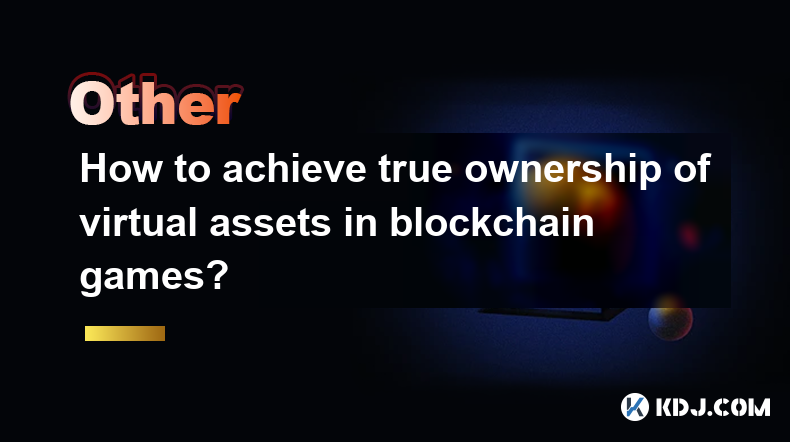
How to achieve true ownership of virtual assets in blockchain games?
Apr 13,2025 at 03:35pm
Achieving true ownership of virtual assets in blockchain games is a topic that has garnered significant attention within the cryptocurrency community. The promise of blockchain technology lies in its ability to provide verifiable ownership and control over digital assets, which is particularly appealing in the gaming sector where players seek to own, tr...
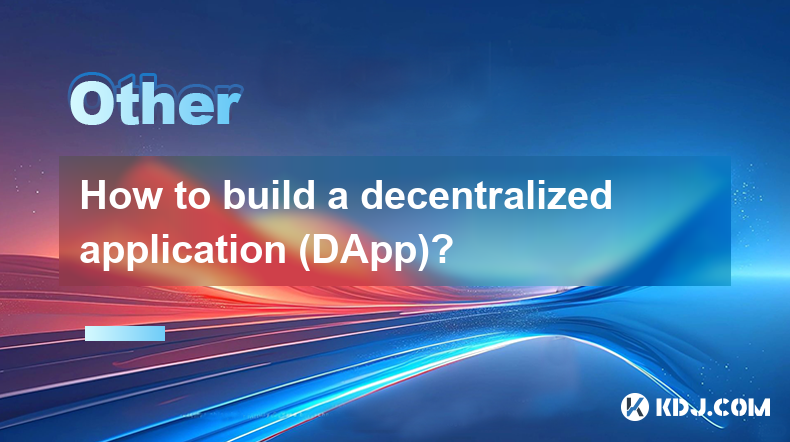
How to build a decentralized application (DApp)?
Apr 14,2025 at 01:01am
Building a decentralized application (DApp) involves several key steps and considerations that are crucial for ensuring the application's functionality, security, and decentralization. This guide will walk you through the process of creating a DApp, from conceptualization to deployment. Understanding the Basics of DAppsBefore diving into the development...
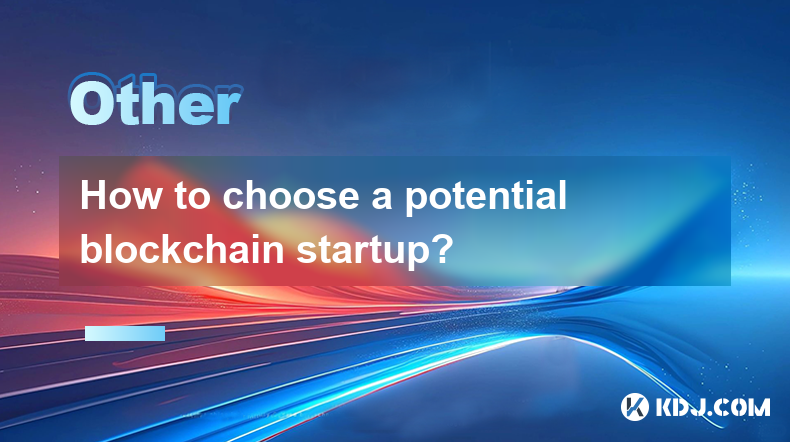
How to choose a potential blockchain startup?
Apr 13,2025 at 06:29pm
Choosing a potential blockchain startup involves a thorough evaluation of several key factors to ensure that your investment or partnership is well-founded. This article will guide you through the process of selecting a promising blockchain startup by examining crucial aspects such as the team's expertise, the project's technology, market potential, and...

How to achieve high returns on cross-border payments through blockchain?
Apr 12,2025 at 05:57pm
How to Achieve High Returns on Cross-Border Payments Through Blockchain? Cross-border payments have traditionally been plagued by high fees, slow processing times, and a lack of transparency. However, the advent of blockchain technology offers a promising solution to these issues, potentially allowing for high returns on such transactions. Blockchain te...

How to achieve identity verification and profit through blockchain technology?
Apr 12,2025 at 10:35pm
Achieving identity verification and profit through blockchain technology involves understanding the underlying principles of blockchain, exploring specific applications that facilitate identity verification, and leveraging these technologies to generate profit. This article will delve into these aspects, providing a comprehensive guide on how to navigat...

How to achieve passive income through blockchain?
Apr 13,2025 at 09:00pm
Achieving passive income through blockchain technology has become an increasingly popular strategy among cryptocurrency enthusiasts and investors. Blockchain technology offers a decentralized platform that can be utilized to generate income with minimal ongoing effort. This article will explore various methods through which you can achieve passive incom...

How to achieve true ownership of virtual assets in blockchain games?
Apr 13,2025 at 03:35pm
Achieving true ownership of virtual assets in blockchain games is a topic that has garnered significant attention within the cryptocurrency community. The promise of blockchain technology lies in its ability to provide verifiable ownership and control over digital assets, which is particularly appealing in the gaming sector where players seek to own, tr...

How to build a decentralized application (DApp)?
Apr 14,2025 at 01:01am
Building a decentralized application (DApp) involves several key steps and considerations that are crucial for ensuring the application's functionality, security, and decentralization. This guide will walk you through the process of creating a DApp, from conceptualization to deployment. Understanding the Basics of DAppsBefore diving into the development...

How to choose a potential blockchain startup?
Apr 13,2025 at 06:29pm
Choosing a potential blockchain startup involves a thorough evaluation of several key factors to ensure that your investment or partnership is well-founded. This article will guide you through the process of selecting a promising blockchain startup by examining crucial aspects such as the team's expertise, the project's technology, market potential, and...
See all articles























































































